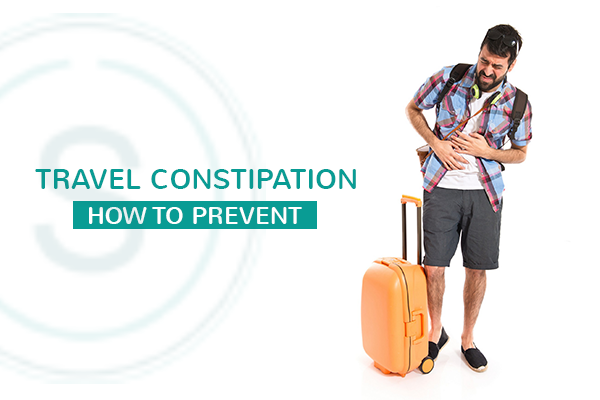In general, constipation is defined as experiencing less than three bowel movements in a week. But, constipation can also be described as passing small and hard stools along with the need to strain during bowel movements.
However, if you don’t deal with constipation on a regular basis, you may experience the uncomfortable feeling of incomplete evacuation of stool when you are traveling. The experts of constipation treatment at SMILES explain more about travel constipation and the ways to prevent it.
What causes traveling constipation
There are many factors that impact the working function of your digestive system which can lead to constipation or diarrhea. Here is a list of factors that cause vacation constipation.
- ● Travel or change from your routine of passing stools.
- ● Changes in the timing and size of your meals.
- ● Dehydration
- ● Lower fiber diet particularly diets high in milk or cheese.
- ● Lack of exercise
- ● Ignoring the urge to pass a bowel movement
- ● The digestive system affected by stress related to travel.
While traveler’s constipation seems to be real, one should consider that constipation is common when traveling – says Dr. Parameshwara, the best gastroenterologist in Bangalore.
Ways to prevent travel constipation
People might look for strategies to prevent traveler’s constipation because no one wants to be seriously ill while traveling. SMILES offer you a list of ways that help stay regular when you are moving along on your travels.
1. Drink plenty of water
One of the most common causes of constipation is dehydration. Actually, drinking more water, fruit juices and clear fluids will help you stay hydrated. So, it is important to consider that you must drink adequate water when you are traveling. Avoiding alcoholic or caffeinated beverages can also help to prevent the dreadful travelers’ constipation.
2. Eat high-fiber foods
Dietary fiber is so crucial for keeping your bowels moving smoothly and consistently. Make sure you eat high fiber foods such as fresh fruits, vegetables, whole grains, and cereals when traveling. Also, eating flax seeds or high-fiber cereals get plenty of fiber and avoid bacterial infections that can lead to vacation constipation.
3. Move your body
Travel often requires a lot of time sitting, that can be in the car, on trains, on airplanes, sometimes even in airports. Keep moving your body can help your digestive system moving as well. So, constipation experts recommended that, while waiting for a bus or train, stretch your body and do a little walking to prevent constipation when traveling.
4. Stay Relaxed
Vacation is typically a way of relaxation and a break from routines, but travel itself can be stressful. Use relaxation techniques such as deep breathing, yoga poses, and muscle relaxation exercises to compensate stress involved in travel. Keeping your body relaxed will also help your digestive system functioning as it should.
5. Avoid Junk foods
People tend to eat more junk foods while traveling, due to the limited availability of the whole foods. But the problem with junk foods is that they tend to be low in fiber which can contribute to the digestive problems such as constipation or diarrhea. Avoid fast foods such as processed meat, chips and baked to avoid constipation while traveling.
6. Eat a healthy breakfast
For most people, bowel movements are more likely to occur early in the mornings. If you are considering this natural boost, load up with a healthy breakfast preferably foods that are rich in healthy fats. The experience of smooth and satisfying bowel movements at the beginning of the day can reduce your risk of travel constipation.
7. Use laxatives
If you had a constipation problem while traveling in the past, discuss it with the best gastroenterologist before you travel. A gastroenterologist may recommend laxatives or stool softeners that help you prevent traveler’s constipation. However, you should use the laxatives only for a short period of time to avoid making your body dependent on them.
Thus, traveling is a time to watch your diet and other routines more. Do you have any questions regarding travel constipation? Consult our team of experts of constipation treatment and get better advice to manage your travel constipation.

